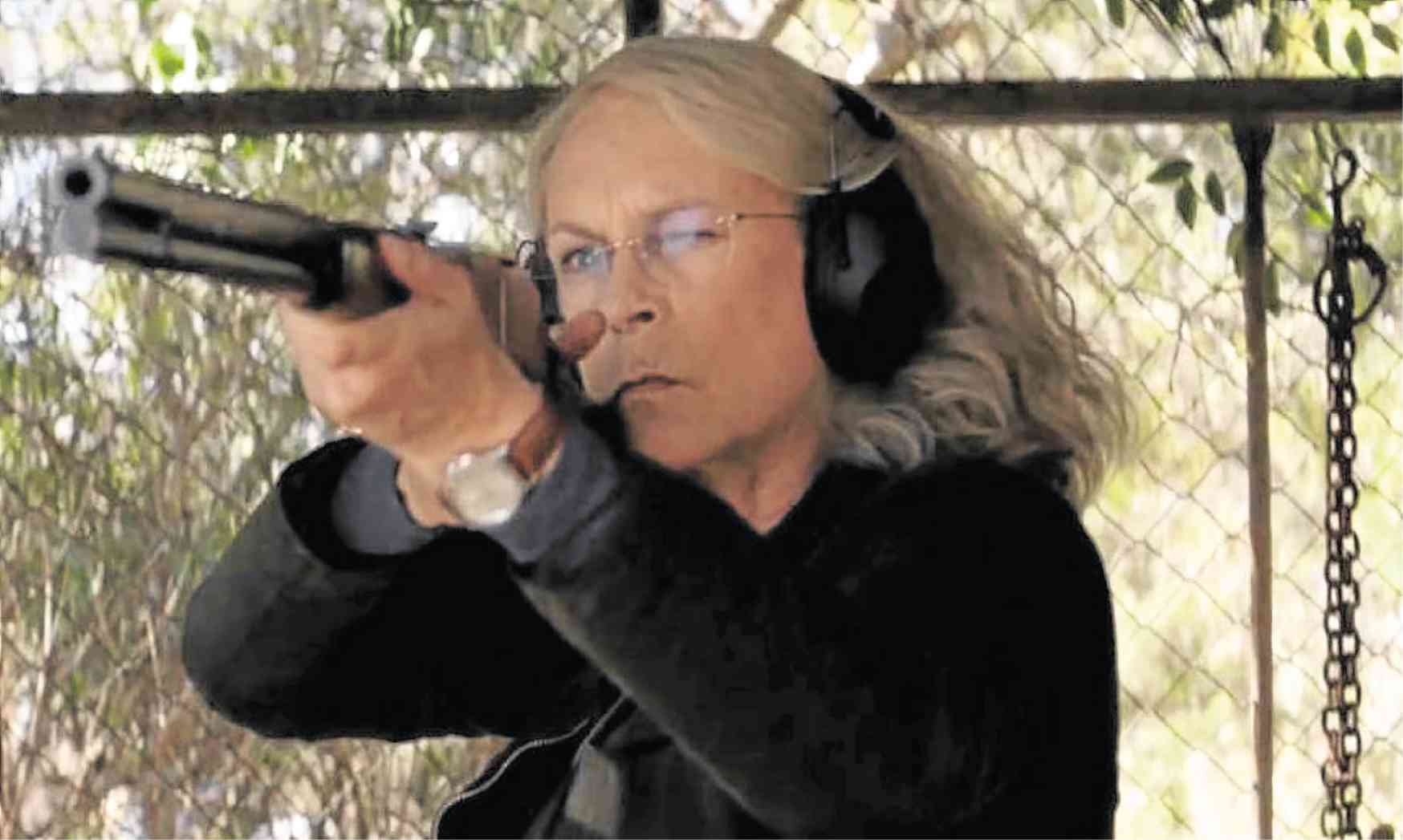Disregarding the sequels that followed after John Carpenter’s 1978 horror film, “Halloween” returns to the big screen with a vengeance, bringing back Jamie Lee Curtis as Laurie Strode, the survivor of a murderous rampage four decades ago, along with her unstoppable tormentor, the masked bogeyman Michael Myers (James Jude Courtney).
But, while this new sequel by David Gordon Green (“Pineapple Express”—who’d have thought?) keeps things simple, it’s still solidly told, having considerably less senseless situations, overall. It’s still a body count-heavy slasher flick, though, and anyone who’s even slightly annoying is likely fodder for the villain.
And slake his figurative thirst for blood, Michael does, terrorizing a variety of victims again with his imposing presence, that expressionless mask and precise killing strokes.
It does, however, feel a lot like “Terminator 2,” where the main survivor is now a badass female warrior, well-versed in the language of violence. Laurie, considered a basket case even by her own family, has been preparing for Michael’s inevitable jailbreak, and she has the doomsday-prepper’s bunker to prove it.
She trained her daughter, Karen (Judy Greer), to be a gunslinger, but she grew up with some resentment for the twice-divorced, paranoid parent.
But Karen’s own daughter Allyson (Andi Matichak) shows more sympathy, hoping to somehow connect with her reclusive grandma.
Sure enough, there’s a satisfying “I told you so” turning point, which exonerates the seemingly disturbed Laurie. There are a few cool twists, but they’re not entirely shocking. If anything, the gore and violence are as repulsive as the disconcerting depictions of murder in the franchise and other carnage-centric horror movies.
Interestingly, “Halloween” is now about the transformation of some of its female characters, just as it is about the time-tested, cat-and-mouse chase. But, really, all we need to see is Laurie finally kicking butt and taking names, hoping that her primal enmity with the unspeaking murderer finally reaches a satisfying end.
It delivers that—all too briefly, and with less creativity than expected—but it’s a nicely cathartic confrontation, nonetheless.
